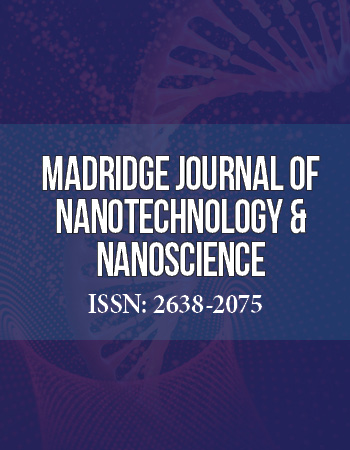3rd International Nanotechnology Conference & Expo
May 7-9, 2018, Rome, Italy
Dynamics of Enzyme Immobilization in Mesoporous Silica Particles
Physical Chemistry, Department of Chemistry and Chemical engineering, Chalmers University of Technology, Sweden
The focus of this talk is placed on the dynamic behavior of proteins in confining environments which is studied as a scientific challenge for a deeper understanding of the immobilization mechanism and a better designing of enzyme immobilization in porous materials. Enzymes are immobilized in porous materials to improve the enzyme activity and simplify their purification from the product solution in biocatalytic applications. Mesoporous silica particle is used as solid support material for immobilization of enzymes. By using various spectroscopic techniques it is possible to probe the environment that enzymes experience inside the pores and/or outer surface of solid porous materials in terms of pH, polarity and characterize the behavior of enzymes after attaching or during the immobilization process.
All research presented in this talk are an effort to get closer to the mechanistic steps of immobilization process. Recently, we have suggested a fluorescence spectroscopy assay based on dye-labelled proteins to monitor the whole immobilization process into mesoporous silica in real time. The main aim is to quantify the kinetics of the enzyme immobilization into mesoporous particles and also investigate how the rate of the immobilization depends on protein size for a given pore size. Moreover, by using steady state and time-resolved fluorescence anisotropy which has been done based on the intrinsic fluorescence (Tryptophan) in proteins, the rotational mobility of enzymes is investigated and by suggesting a ratio-metric method to measure the viscosity inside the particles and also calculating pore filling, three possible mechanisms for decrease in rotational mobility of immobilized proteins are discussed.
Biography:
Pegah S. Nabavi Zadeh received her M.Sc. in biotechnology at Lund University, Lund, Sweden, after doing her diploma work on improving the effect of preservatives by encapsulation at Swedish institute for food and biotechnology (SIK) within the group of material characterization. Therefore, she started her PhD project at Chalmers University of Technology, Göteborg, Sweden regarding enzyme immobilization in mesoporous silica particle from a physical-chemical perspective in the physical chemistry division. The project aim was to characterize the behavior of enzymes after/during the immobilization, also identify the environment that enzyme experience inside the pore after immobilization.


